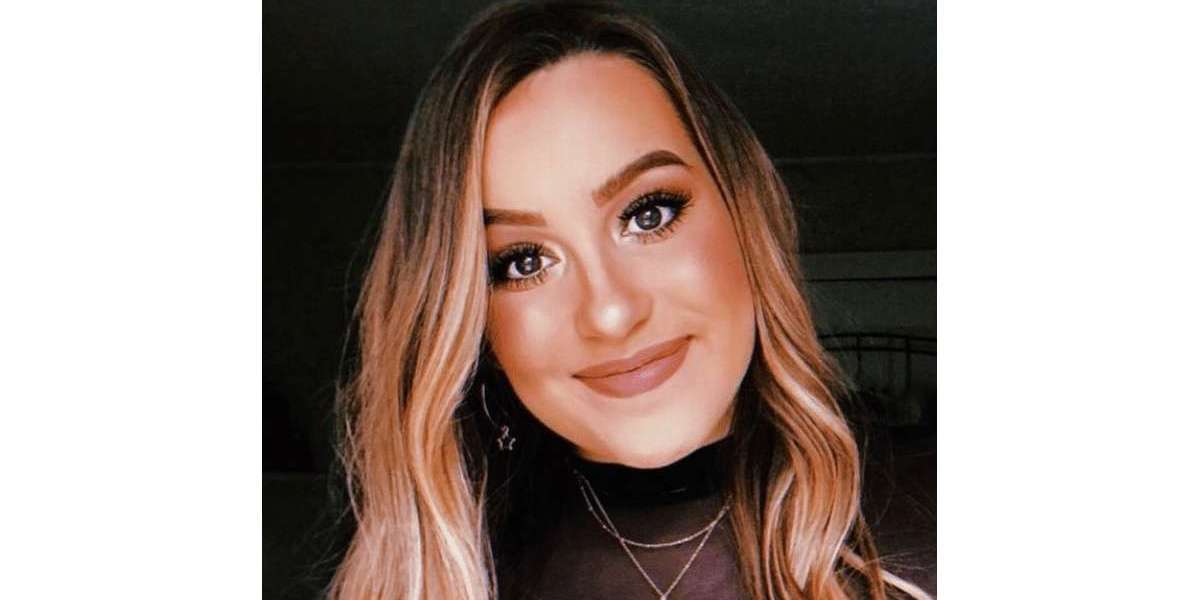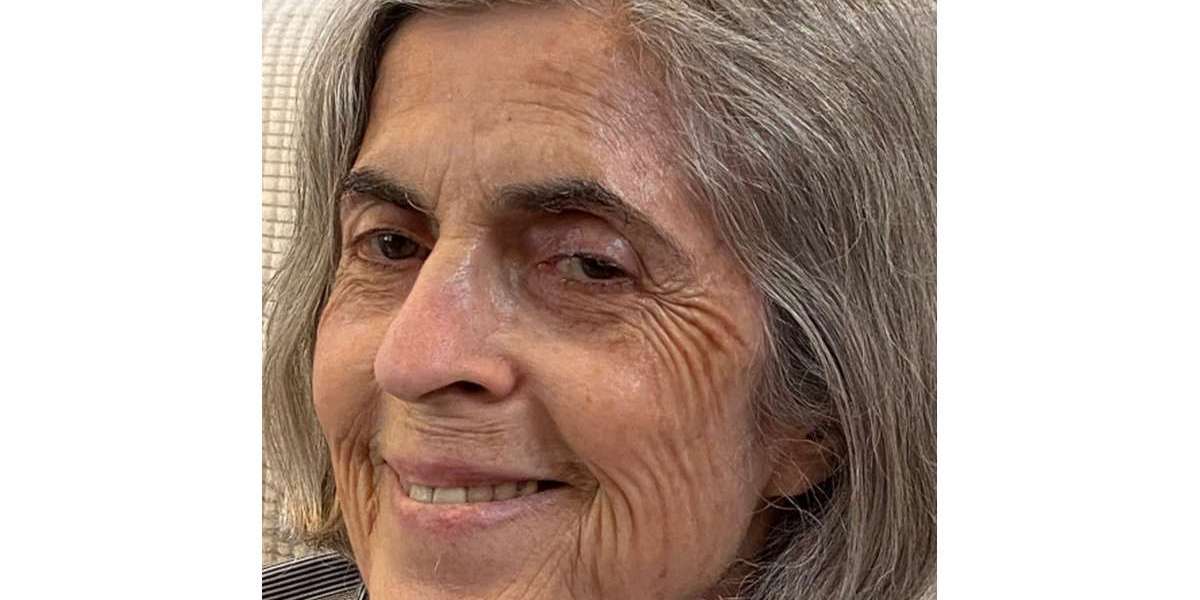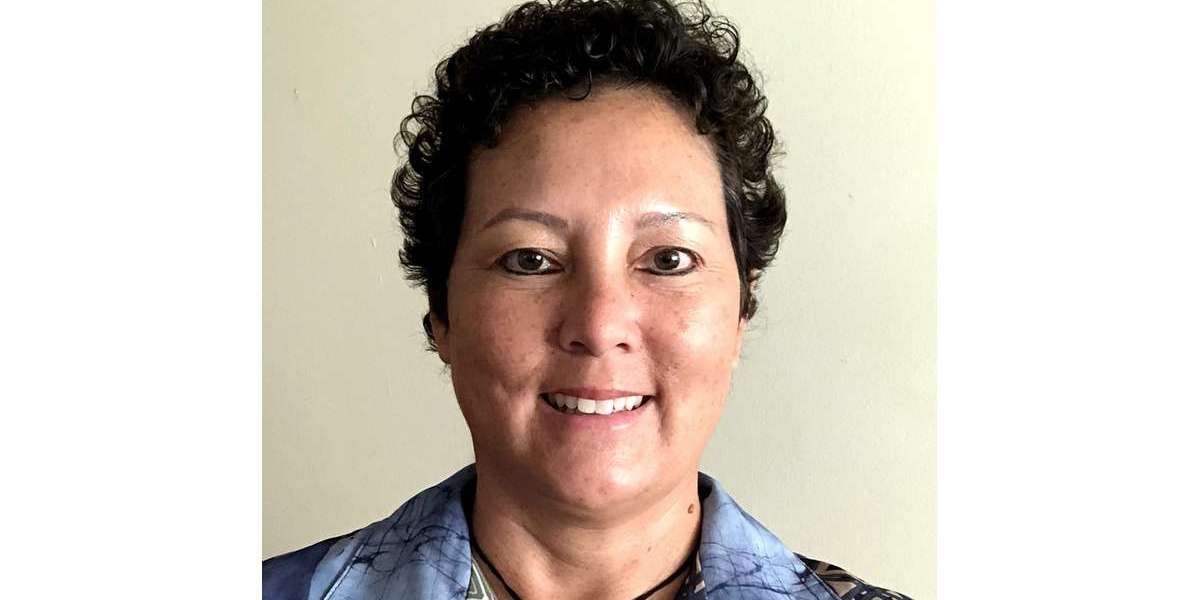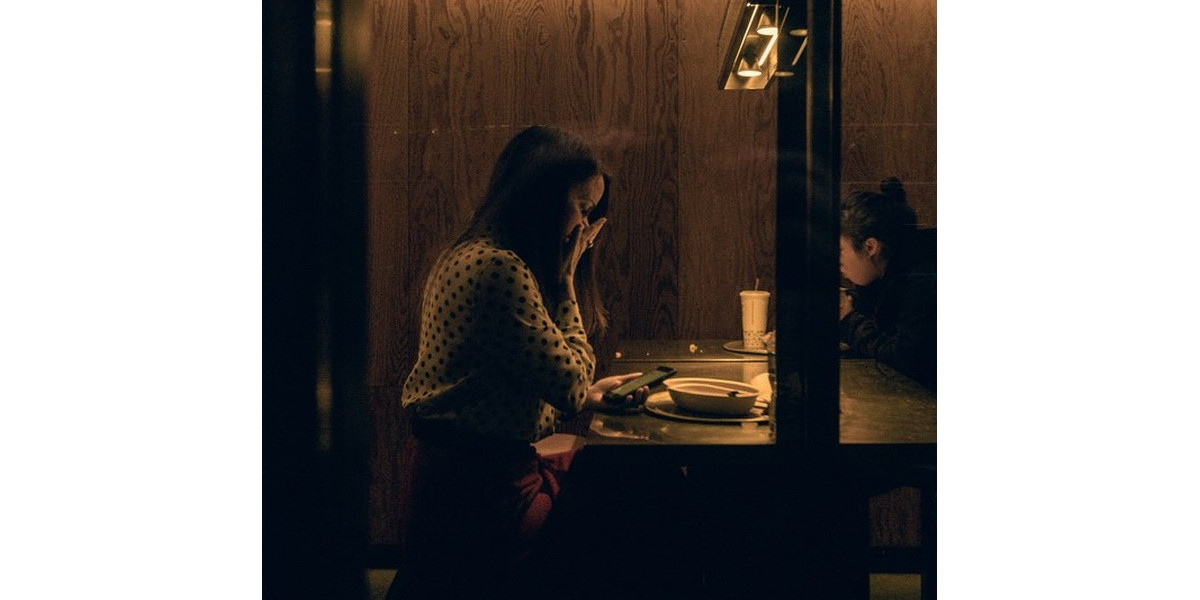Erin’s Stage 4 Diffuse Large B-Cell Lymphoma (DLBCL) & Burkitt Non-Hodgkin’s Lymphoma Story
Erin R., Diffuse Large B-Cell Lymphoma (DLBCL) & Burkitt Lymphoma, Stage 4
Symptoms: Lower abdominal pain, blood in stool, loss of appetite
Treatments: Chemotherapy (Part A: R-CHOP, HCVAD, Part B: Methotrexate, Rituxan, Cytarabine)
Erin’s Stage 4 Diffuse Large B-Cell Lymphoma (DLBCL) & Burkitt Non-Hodgkin’s Lymphoma Story
Erin was diagnosed with stage 4 non-Hodgkin’s lymphoma. She had a combination of two subtypes: diffuse large B-cell lymphoma (DLBCL) and Burkitt’s lymphoma, prescribing her 2 types of chemo.
Explore Erin’s detailed story below. She talks about hair loss, the best support she got as a patient and being a self-advocate. Thanks for sharing your story, Erin!
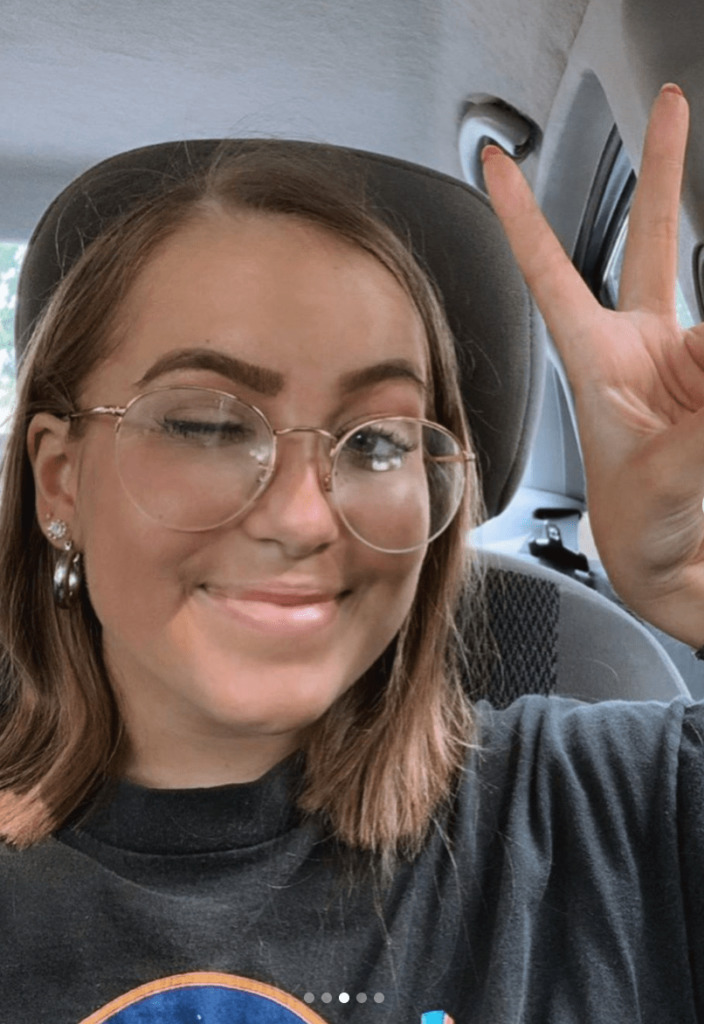
- Name: Erin R.
- 1st Symptoms:
- Lower abdominal pain
- Blood in stool
- Losing appetite
- Diagnosis (DX):
- Combination of two non-Hodgkin’s lymphoma types, sometimes classified as “high-grade B-cell lymphoma”
- Diffuse large B-cell lymphoma (DLBCL)
- Burkitt lymphoma
- Staging: 4
- Path to DX:
- Colonoscopy finds 4cm mass
- Treatment:
- Chemotherapy
- Part A: R-CHOP with Hyper-CVAD
- Part B: Methotrexate, rituximab (Rituxan), Cytarabine
- Chemotherapy
- Side Effects:
- Nausea
- Hunger
- Hair loss
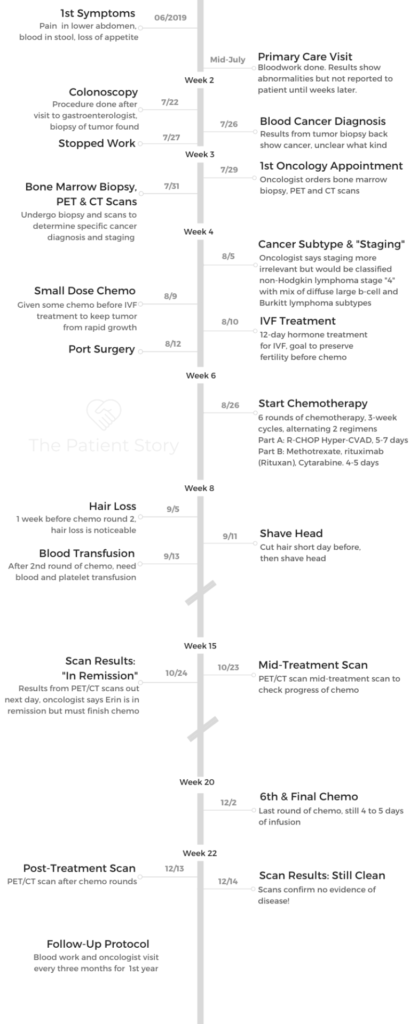
This interview has been edited for clarity. This is not medical advice. Please consult with your healthcare provider for treatment decisions.
As much as you want to stay really positive and strong the whole time, there are moments where you aren’t. I wish I knew that that was okay and valid.
I think I beat myself up a lot because I felt certain ways or reacted certain ways.
I wish I knew whatever reaction or way I felt about anything during my treatment was justified and valid.
Erin R.

Erin’s Story on Video
Getting Diagnosed
First symptoms of cancer
The primary symptom that ultimately led me to seeing a doctor was the lower abdominal pain. That was my first symptom, along with blood in my stool and losing my appetite, but the stomach pain just kept persisting.
For a while, I was just waiting for it to go away. It did it for about a month, and then I just remember telling a lot of my friends and family that I was getting more concerned that this was going to be actually a serious problem.
A lot of people were downplaying it and making it seem I was being overdramatic, but it just kept persisting and got to a point where I was about to leave for college.
I didn’t want to have to deal with any potential medical things by myself at school, and so I decided to see a doctor real quick before I leave.
I didn’t think it was gonna be a really big deal. But I was like, “No, I have pain. Maybe I should check it out.”

Primary care visit
I went to my primary doctor. He was concerned about the blood in my stool and the pain in my stomach, and he wanted to know what was causing that. He recommended me to a gastroenterologist, and then we immediately scheduled a colonoscopy.
Gastroenterologist visit
The gastroenterologist was pretty nonchalant. He was just like, ‘We’re going to get the colonoscopy and see what’s causing the problem.’
Even afterward, when I was told that I had a tumor, he used the term “mass,” which I think made it still seem it wasn’t going to be that serious because I feel the word “tumor” versus “mass” has a different connotation
Even when I was told that, he was pretty reassuring. “There’s a mass, but we’ll sample it and call you back in a few days with what it was.”
What happened during the colonoscopy?
In the colonoscopy, they put the camera up inside my intestinal tract to take pictures. The pain in my stomach was due to a mass where my small intestine met my large intestine. It was about 4 centimeters when they found it.
That’s that’s how I found that. It was through the colonoscopy.
We planned on meeting back with my gastroenterologist in about a week to discuss what we wanted to do to move forward. He was going to call in a few days with the results. He said 2 to 3 days, and we ended up not getting a phone call.
That led me to believe that it wasn’t going to be that big of a deal, and it was just going to be going into the doctor’s appointment, maybe having a surgery or something. But it was that follow-up appointment that I was told that I had cancer from the biopsy.
When did you get the cancer diagnosis?
I was running a fever that day, but I didn’t think it had anything to do with what was going wrong with my stomach. I just thought maybe I got sick or something. Me and my mom were in the waiting room just joking around.
I don’t know if it was denial that it could be really serious, but I just went in really not thinking it was going to be that big of a deal. We sat in the room waiting for my doctor. He just came in, and it was the first thing out of his mouth: ‘It’s cancer.’
I could tell he was kind of shocked by it, too, by the way that he prefaced everything after my colonoscopy. He was reassuring me that he really didn’t think that that was going to be the outcome, especially because I’m so young. I feel [it] is a wrong assumption a lot of people have that cancer doesn’t happen to young people.
They knew that it was cancer. I’m pretty sure they knew it was non-Hodgkin’s, but they weren’t sure specifically what kinds of non-Hodgkin’s, so they wanted to do another test: a bone marrow biopsy.
They sent my biopsy sample to the hospital that I later went to, Northwestern, because I decided that right after the diagnosis, that’s where I wanted to go. I knew pretty quickly.
I knew that it was cancer, and I knew that it was non-Hodgkin’s. The appointment itself was very quick. He just kind of came in and told me I had cancer, referred me to an oncologist, and that was the whole appointment.
How did you process the cancer diagnosis?
I think it was just so much shock. I didn’t really react at all. My mom was in the room and, of course, she just immediately started crying.
I had no reaction really. I think a lot of that was due to the shock, but I think overwhelmingly, I was really uneducated on what that was going to mean for me going forward in terms of treatment.
I was still under the impression I was going to be going back to college in a week and maybe seeing a doctor. I didn’t understand the full scope of everything.
It was really easy for me to be in denial about it for quite a while. It wasn’t until I started to see how everyone else reacted to the news that I thought, “This might be more serious than I want to admit to myself.”
»MORE: Processing a cancer diagnosis
Breaking the news of cancer to loved ones
I think because I was in such a state of denial, I was able to be a lot more lighthearted about it and make it seem not as big of a deal. I feel I am grateful for that because I feel when breaking that kind of serious news, me being able to be more positive about it helped us handle it a lot easier.
»MORE: Breaking the news of a diagnosis to loved ones
How did you handle the influx of concern?
My parents were great advocates for me. In terms of my family, my parents would advocate for me a lot.
Something that I personally noticed was a lot of people would ask my friends how I was doing with a lot of questions. I think some people were a little nervous or didn’t know the right ways to ask me, personally.
My close friends would ask me about my treatment, but I feel like the vast majority of my community, a lot of people were scared to ask me and would ask people like my friends.
Treatment Decisions & Scans
Next steps
Once I got my diagnosis, it was zero to 100 really fast. I met with my oncologist, and then I immediately was getting the bone marrow biopsy and the CT and PET scan.
What happened during the bone marrow biopsy?
They put a bunch of lidocaine on my back, so I ended up not feeling it at all. I just felt a lot of pressure. It was just a local anesthetic, but I was given a lot of lidocaine, so it really didn’t hurt too bad.
I personally didn’t look at the needle. I have heard that it is a pretty large needle but definitely not something to be too scared of, because they do take a lot of precaution to make you as comfortable as you can be.
Undergoing a CT scan
You have to drink a contrast solution before the CT scan, which was honestly the worst part, not even the scan, just because I didn’t really like the taste.
[For] the scan, the machine might look really scary, but the process isn’t bad.
You’re just laying in there chilling. I was just daydreaming about what I wanted to do later that day and just trying to take my mind off of it. It definitely looks a lot scarier than it is. I thought it was going to be a lot more complicated looking at the machine than it was in actuality.
How long does it take to get CT scan results?
I believe that I would get them within a few days after, pretty promptly. When I would get my scans, it was pretty close to when I would already have a scheduled appointment with my oncologist for them to go over [the results].
It would be right before I would have a treatment or just a checkup, so I would typically get the results within 2 to 3 days.
Did you experience “scanxiety” waiting for test results?
I don’t think I did much during treatment, because in the beginning I already had the knowledge that I had cancer, so I knew that that was going to be present.
Then after my third round of chemotherapy and during that halfway PET scan, I was put into remission, so I don’t think I had a moment of being super scared.
I feel it more so now after the fact, being done with everything, because you’re given the clear. The thought that you might have to go through all of that again, I think it’s really scary.
»MORE: Dealing with scanxiety and waiting for results
Cancer staging
I found out the results with my first meeting with my oncologist in the city where I was going to be getting a treatment.
She said at that point that the tumor in my stomach was behind my right breastplate, it was in my neck, as well as in my ovaries.
She said she didn’t like to stage them just because it is a blood cancer, but she said if she were to stage it, she would stage it as a stage 4.
Diffuse large B-cell and Burkitt lymphoma diagnosis
She was describing how it was a mix between the 2, which made it irregular and not a typical kind of non-Hodgkin’s that they would see. At that point, they weren’t sure on the treatment regimen that I was going to get.
I was going to be doing in vitro fertilization (IVF), so they had a bit of time to figure out exactly what they wanted to do moving forward.
She described to me that a team of oncologists at the hospital were going to be looking at my case — I guess in my type of cancer — and [deciding] together what they thought the best plan of action would be moving forward.
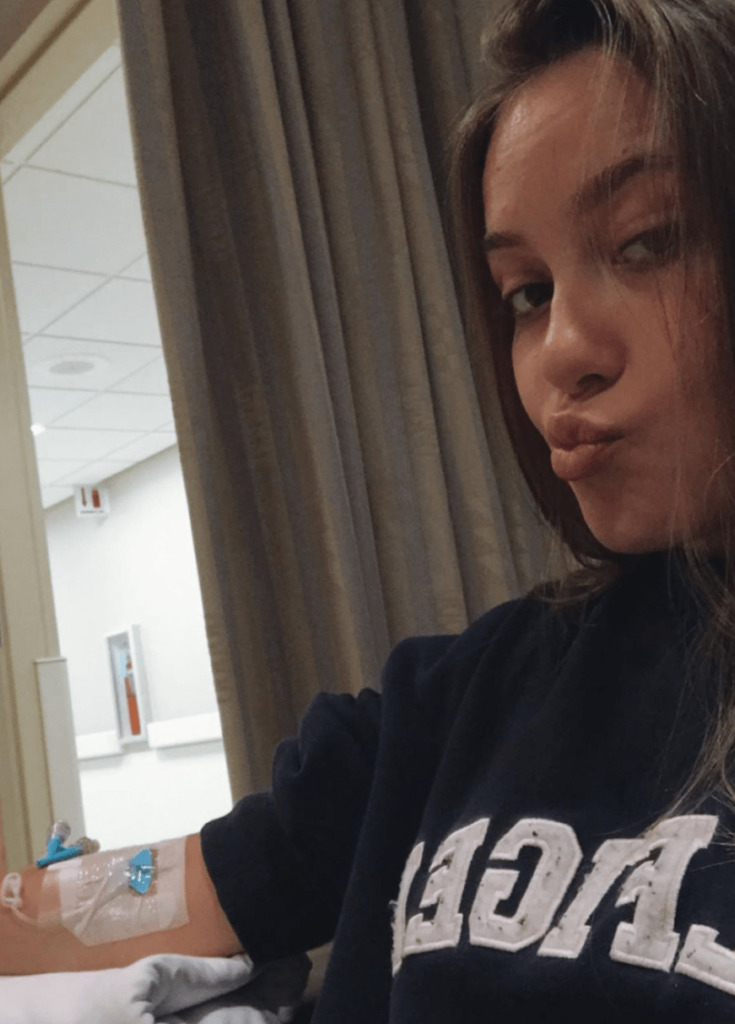
Fertility & IVF
Preserving fertility before chemotherapy
After I met with my oncologist, they were concerned since I was probably going to be getting a pretty strong chemo regimen. They were concerned for me being as young as I was and for my fertility in the future.
They wanted to start IVF prior to me starting treatment, and that started pretty promptly. Within a few days, I started my IVF treatment. That lasted for 2 weeks.
»MORE: Fertility preservation and cancer treatment
Who brought up the issue of fertility?
My first oncology appointment ever was with my local one right after I had the CT scan. That was one of the things she brought up. She brought up wig shops, and she didn’t bring it up in the phrasing of fertility and being concerned. She said it more like, “Oh, we’ll probably want to do IVF.”
I kind of knew what that meant. That’s definitely a hard thing to hear, being that young and just thinking about kids in general. My biggest fear in life was not being able to have kids.
It was definitely a really hard thing to hear, but I’m very grateful that I was given that opportunity.
What’s the IVF process like?
That consisted of about 3 shots every night in my arm, self-injection. Then every morning, if not every other morning, I would have to go to a fertility clinic and get an ultrasound to see the progression of how my ovaries were growing.
The trigger shot I did, I believe, was 24 hours before my egg removal. Right after that, the next morning, I went down to get the procedure to get my eggs removed.
»MORE: A patient’s IVF journal
What is the egg retrieval process?
Honestly, it’s the same as a bone marrow biopsy. I think it seems a lot scarier talking about it than it is in actuality because you are put under for it. I personally wasn’t sore afterwards.
They definitely try to make you as comfortable as you possibly can be for it. I don’t think it is something to be too scared of or worried that you’re going to be uncomfortable or feel any kind of pain.
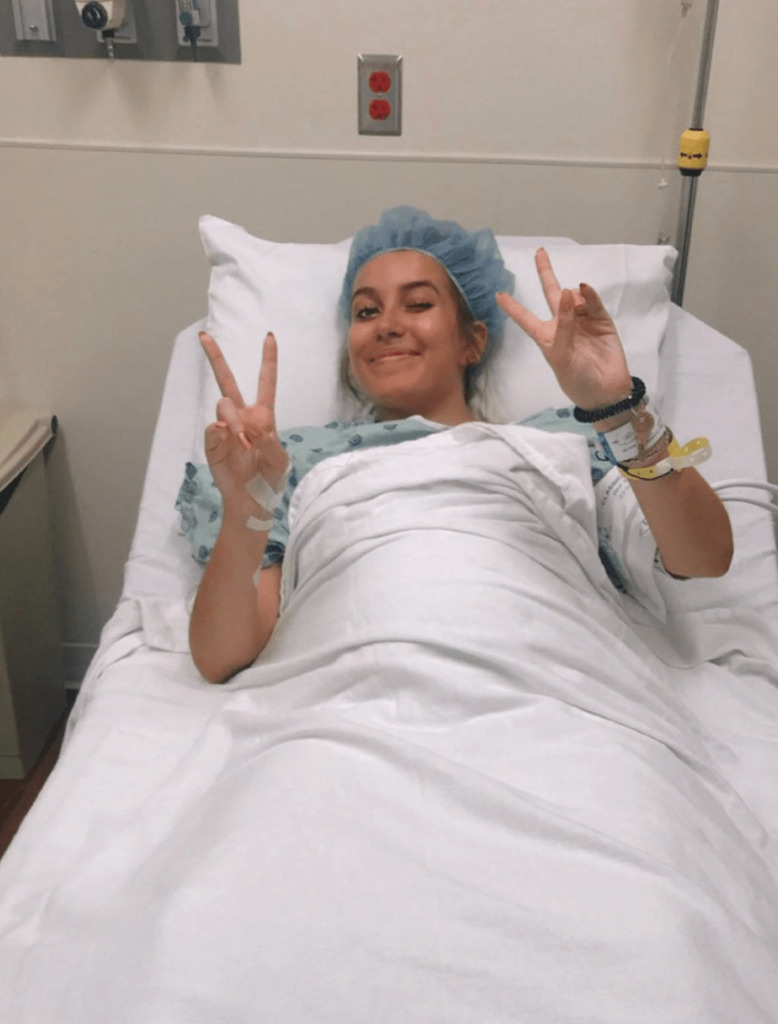
Small dose of chemo during IVF
In the middle of my IVF, during one of my meetings with the fertility team, I was starting to get physically really sick pretty rapidly, and my tumor actually doubled in size within the matter of a week.
They could see how sick I was. I was in a wheelchair at that point, and I wasn’t even able to walk in, so they were just concerned.
They wanted to stop the cancer from growing a little, but they didn’t want to give me too much chemotherapy to where it would mess with my fertility since the cancer was in my ovaries.
That landed me in the hospital for, I want to say, 4 or 5 days, and I was given Rituxan. It’s not uncommon for people to have a reaction to Rituxan, but I think in large part due to the tumor, my stomach was very full of fluid to where I looked like I was pregnant. I had a really bad reaction to it.
Also during that day, I got my port put in. Once I was released, I think I did the IVF for 3 or 4 more days.
Then I had the procedure, and then immediately after I had the procedure, I was admitted into the hospital to start chemotherapy.
Chemotherapy
Describe the port surgery
I actually had my port put in on my 20th birthday. I think the worst part for me is just always the fasting, not being able to eat, along with waiting to get it done.
When I went to go get the procedure, [it was the] same thing. I was put under for it, so I didn’t really feel any pain or discomfort.
I think the port site pain or discomfort from the surgery was a few days after all the numbing wore off, and it was just a little sore.
Did you like the port?
The port did work well for me. There wasn’t any discomfort. I remember when I was home after [the surgery], it was a little bit tender and sore.
Mentally preparing for chemo
I had a little birthday party in my room with balloons and family and friends. That definitely helped with getting my mind off of everything. I didn’t think about the surgery too much.
But like I said before, I was in denial about everything for a while. When all of these major events were happening, I just didn’t really see it as a big deal.
I was just, “Okay, I had to go get surgery.” I didn’t know anything. I guess I didn’t understand at that point still how serious everything was and everything that I was going through.
My first dose of Rituxan I got through an IV, and then my infusions were going to last so long it was important for me to get that port in, so I wasn’t harming my veins too much with the chemotherapy.
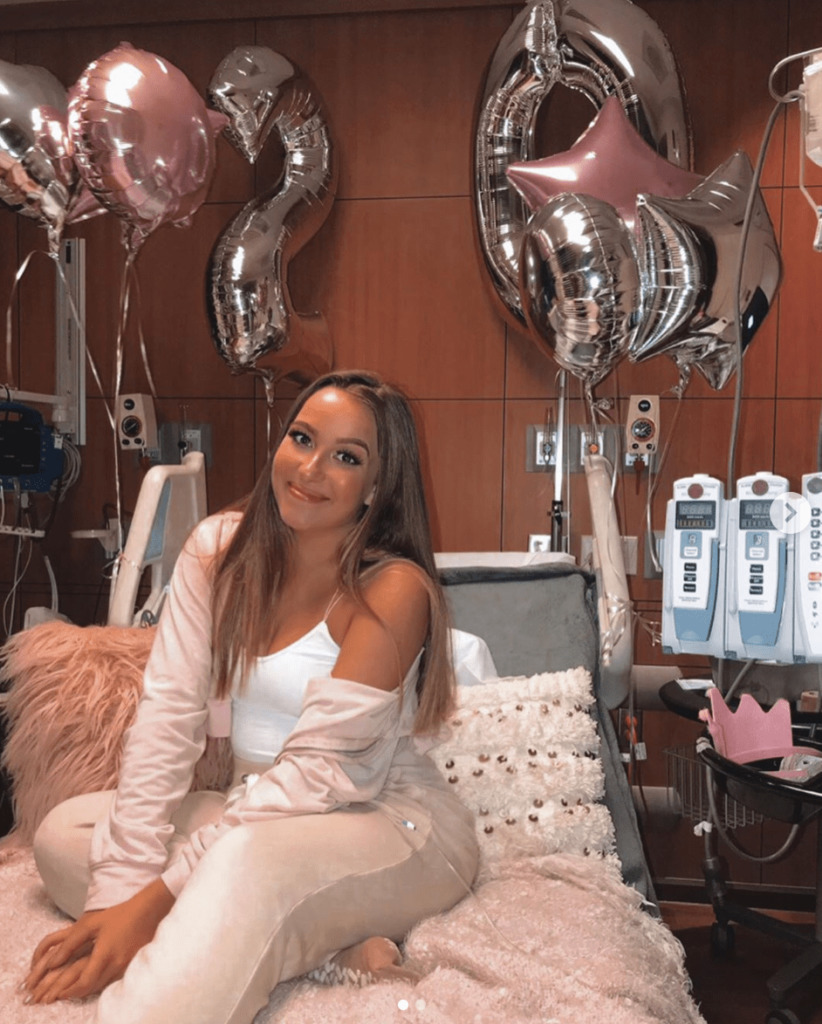
Describe the chemotherapy regimen
Summary:
Part A: R-CHOP with hyper-CVAD
Part B: methotrexate, rituximab (Rituxan), cytarabine
I had a Part A and a Part B in my regimen. Each time that I would go in, it would switch off from Part A to Part B. In total, I had 3 cycles of each.
The Part A would last a little bit longer than the Part B. I believe that ran for 5 days. After I would finish my chemotherapy, they would keep me in the hospital maybe for a day or so on fluids or platelets or blood if necessary, just to make sure that I was fully in a state well enough to leave the hospital and be at home.
Part A will typically last about 5 to 7 days. Then my Part B, if I was lucky and all my levels were looking good, I could be out in 4 days. The Part B would range from about 4 to 5 days.
I was admitted into the hospital, and I received it inpatient. My infusions were continuous, so I would be hooked up to my IV for either 5 days at a time with Part A or about 3 days at a time with Part B.
Was the combo chemo regimen to address your “combo diagnosis”?
I’m not sure if I got Part A for the differing types. I think combination of a chemotherapy was due to it being not a more regular diagnosis. Basically, they told me that it was like the diffuse large B-cell (DLBCL) but it was also like Burkitt in the way it was very fast growing. It had components of both of the differing kinds.
That’s why I think I had a more personalized chemotherapy regimen.
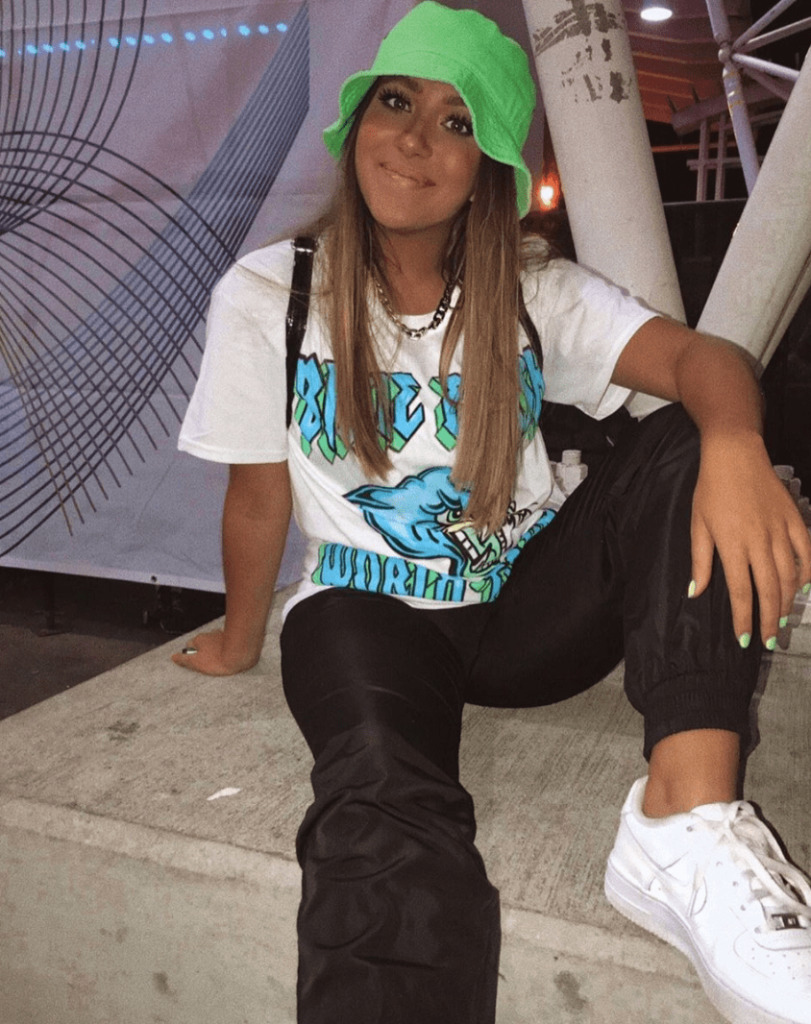
Checking into the hospital
I would go to the hospital, and prior to me getting admitted, I would go and get my blood drawn by the staff. Then I would wait to get taken up to my room.
Once I got into my hospital room, I would get settled for a while, and it would normally take a few hours for my chemotherapy to get ready. I definitely had some settling-in time when I would first get there, and sometimes they would start me off with some fluids beforehand.
It would take a few hours for my chemo to start, and then once I was on it, it was pretty continual until right when I was going to get released. The infusions are around the clock, and my nurses would come in pretty frequently.
How long were the chemo infusions and hospital stay?
For my Part A, my infusions ran for about 5 days at a time, and they wouldn’t discharge me until my levels looked adequate enough — my blood counts and my potassium and things like that.
Even though my infusions would only last 5 days, I would sometimes be in the hospital for 7. That also could be due to my chemo taking a little bit longer to get started, and so that would push back the timing of everything and cause chemo to be delayed.
What’s dose-adjusted chemo?
They would take my weight and everything when I would get into the hospital, so they would know the correct dosages for the chemotherapy.
Sometimes that would fluctuate a little bit, and so there would have to be changes made to my chemo and having the pharmacy being able to get it ready.
Sometimes there was some delays, and so the process of me getting my room could take a few hours, just waiting to get my room. The few hours it took to get my chemotherapy could push my stay a whole day back or 2.
Then for the Part B, it normally was a little bit shorter, around 4 or 5 days, but I think that infusion only ran for 3 days.
Chemotherapy Side Effects
Describe the side effects
I personally didn’t really feel a lot of discomfort or side effects from the chemotherapy itself during treatment. I felt side effects a few days after finishing it.
The only thing I really noticed during my treatment was that I would get very, very hungry due to the prednisone or sometimes would feel kind of nauseous to where I wouldn’t want to eat. In terms of side effects that I felt during the chemotherapy, that was about the only thing.
I didn’t really have any side effects, except losing my hair. Then my second [cycle] was definitely when I felt the most sick. After my third [cycle] was when I was able to go out and do a lot more things, whereas before I was very much bedridden.
What helped prevent or lessen the side effects?
I was on a lot of nausea medication when I was in the hospital, as well as a lot of pain medication.
I think without that, I would have been a lot more nauseous due to the chemotherapy or in more pain because of just everything in my stomach.
I was definitely given the medication to where I was able to be pretty comfortable, given the situation in my hospital bed. I personally would prefer for myself being on nausea medications and pain [meds] around the clock.
If I were to request nausea medicine after already feeling the sensation of being nauseous, I would end up just throwing up regardless and probably throw up my medication.
My first round of treatment was a test run to have the knowledge that I was pretty nauseous from all of it. Because of that, they kept me on an around-the-clock nausea medicine.
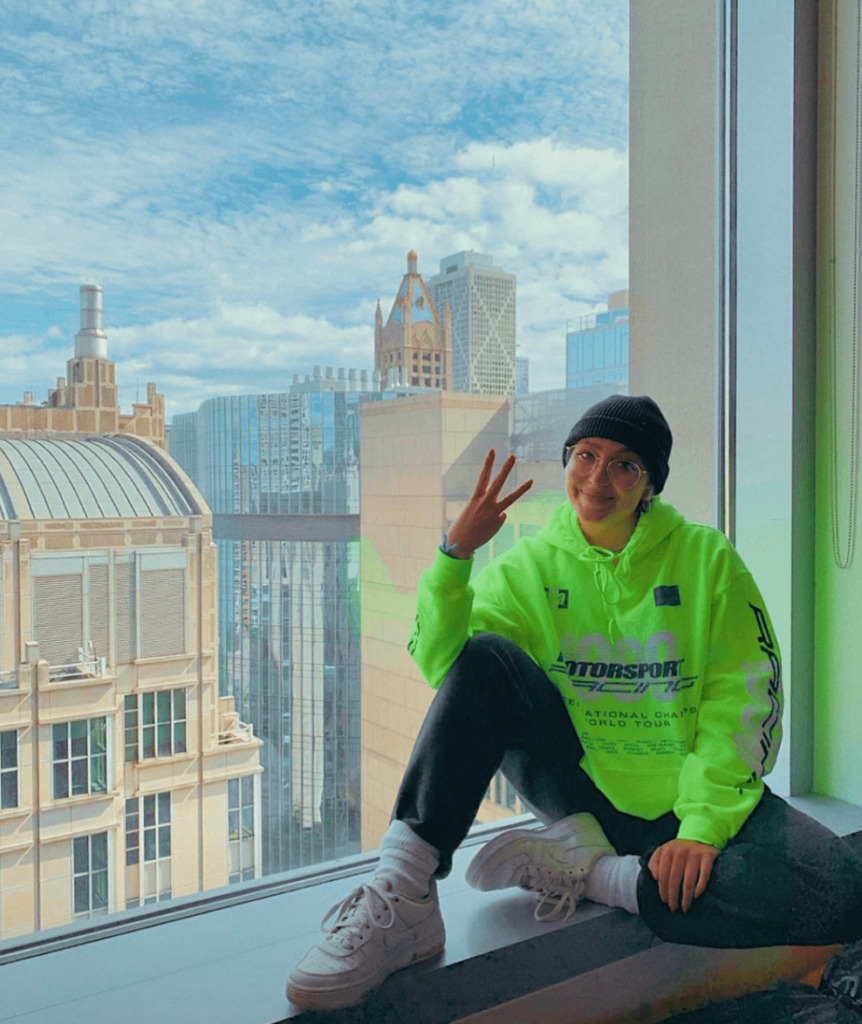
»MORE: Cancer patients share their treatment side effects
How to pass time in between chemo cycles
Chemotherapy for a week, and then the second week recovering. It was definitely a lot of fatigue and a lot of nausea. I find myself just laying in bed or laying on the couch, watching Netflix or trying to find more mindless activities: coloring books or something that passed the time.
I found being in the hospital and being kind of isolated from people mentally draining.
In that first week, I would also feel the need to just mentally get myself back together before I could really fully engage with a lot of people. It was a lot of physical recovery, as well as a lot of mental recovery.
Side effects improving
At the beginning of my treatment, I was overall very physically sick in general, so I was feeling very fatigued and not the best. The side effects, I was still learning how to manage them, so at that point it was very challenging.
After I had a round under my belt, I had a better understanding of how to manage my nausea and everything. I knew how long it was going to take for me to fully reboot and get back to a better state.
After my third round of chemotherapy — aside from the first few days of nausea, which for me was my primary side effect — I was at a pretty good place physically.
Losing hair from chemotherapy
It was about a week before I was going to go in for my second round of chemotherapy. It was in the shower. I saw some hair falling out, but at that point it wasn’t heavy. It was the very beginning stages of it. It looked like it was a little bit more than normal.
I anticipated losing my hair was going to be happening soon, so I understood that. That was the beginning of it.
I thought it would be a lot harder to progressively watch it fall out, especially because I had very long hair at that point. I found myself avoiding brushing it for the first few days, because I didn’t want to see it fall out.
Deciding to shave your head
It was getting so close to my second round of chemotherapy that I didn’t want to let it get to the point where I wanted to shave it and have to do it in the hospital.
I knew it was going to be a really emotional experience, and I wanted to be able to be home and have time to myself to feel all the emotions that come with that.
